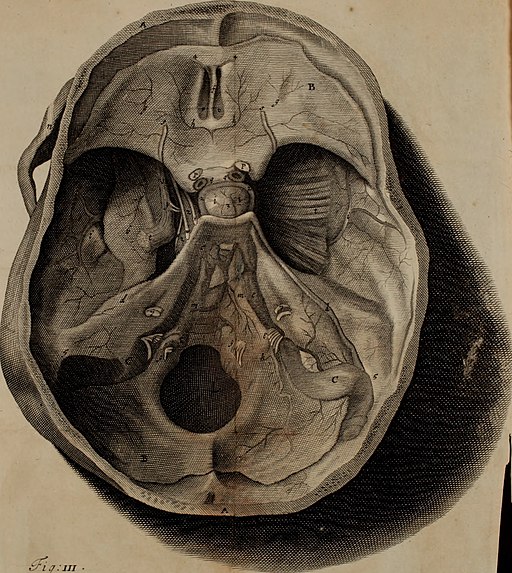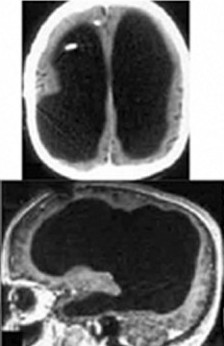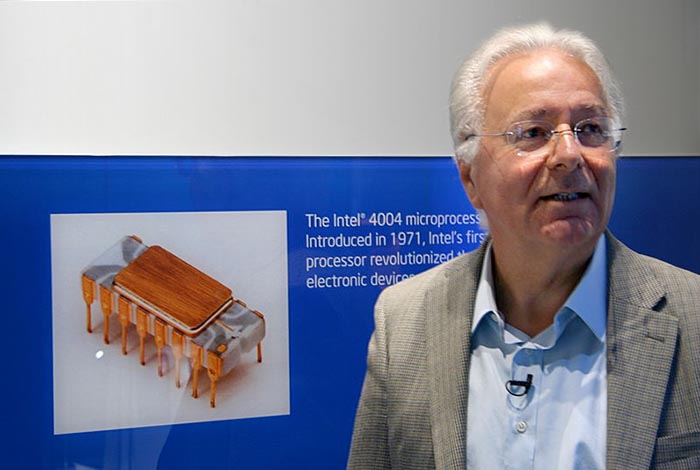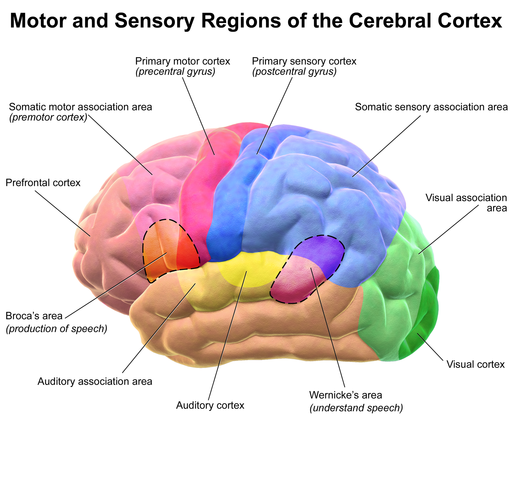
|
home | what's new | other sites | contact | about |
||||||
|
Word Gems exploring self-realization, sacred personhood, and full humanity
Afterlife Evidence
return to "Afterlife" main-page
Editor’s note: You will find many articles on the internet featuring the work of brain researcher Dr. John Lorber, but this one below will serve as introduction to the subject of "intelligence without brain."
from: https://metascientist.com/do-we-even-need-our-brains/ Do we even need our brains ? – Some Scientists aren’t so sureOnce during a discussion, a respectable someone (who I won’t name) suggested to me:
He went as far as suggesting we ‘think’ with the heart as well. Out of respect, I refrained from saying anything in person, but inside I was thinking “that’s ridiculous!” This person is very invested in eastern Yogic, Sufi, and Buddhist ideas. Which gave me some perspective on his views, but all the same (being a man of science myself), I rejected them entirely. Though I have high respect for such (Buddhist) ideas myself when they lead to rejecting empirical evidence they fail for me greatly. This person then suggested that there was evidence to support his claim. He referenced to stories of normal people who on brain scans were found to have no brain in the skull, only water! Again I was thinking that’s preposterous. Probably some anecdotal stories which get exaggerated as Chinese whispers. I was greatly surprised and humbled when I found out that those stories were actually with some merit! In Dec 1980, Roger Lewin published an article in the Journal ‘Science’, titled: “Is Your Brain Really Necessary?” [1] This article was based on case studies (hundreds of them) done by British Neurologist, Professor John Lorber on patients with hydrocephalus. Particularly focusing on one case. The case of a university student who had an IQ of 126 and had gained a first-class honors degree in mathematics, and was socially completely normal. But on doing a brain scan they found he for all practical purposes did not have a Brain!
Instead of the normal 4.5 cm cortical thickness, he only had about a 1mm thin layer. The rest was just CSF (Cerebro Spinal Fluid) which is practically water. This had likely happened due to a slow displacement of the cortex outwards (and against the skull) because of increasing pressure and quantity of the CSF fluid. This meant that the deeper, more primitive, structures were relatively more intact (although still under pressure to shrink and likely not normal either). This case was well documented and has been greatly debated, including in the original article. The leading explanation seems to be of neuro-adaptation (which has also been called a cop-out). Nevertheless, it still remains difficult to explain away such observations. As Emeritus Professor William Reville states [2]:
Lorber’s other interesting observation was that this isn’t a unique finding either. In fact, in his studies, 50% of people with more the 95% of the cranium filled with CSF still have an IQ greater than 100![1] Now I don’t know why this hasn’t shaken the field of neurology as it should have. I, on the other hand, find it earth shattering. Perhaps neuroadaptation can explain some take over of functions. But surely having a 50 to 150 grams brain (and only a millimeter thick cortex) compared to the normal 1.5 Kg brain should have huge impacts on cognition. Our neurological theories usually associate the cortex with specialized areas of processing e.g. sensory cortex, motor cortex, auditory cortex, visual cortex etc. Some other functions include abstractions, calculation, sequencing, memory etc. Apparently, it seems all these specialized areas get compressed and mushed into a millimeter thick layer and still function properly. Although there is no mention of the morphological changes in this article. Other and more recent research suggests there is extensive axonal, cytoskeletal and synaptic damage with hydrocephalus. There is relatively less neuronal death. However secondary changes are observed in neurons as well. [3][4][5] There is such great damage to the communication apparatus yet still normal levels of intelligence and cognition! Does this not beg some reflection on our current direction of understanding? Most of our theories center around communication and signaling having a central role. The reduced space would also reduce the ability to form new interconnections between neurons, as the shape of the cortex changes to a flatter one. These new interconnections are a fundamental basis for how we generally understand brain activity and how we explain learning and memory. Take for example Grid Neurones which have been experimentally shown to be located in the entorhinal cortex and which along with Place Neurons (the discovery of which earned the 2014 Nobel prize in Medicine and Physiology) constitute the navigation system within animals and humans [6][7]. The mechanics of Grid neurons are complex but an essential component is their ‘Modular Organization’ (a good article describing this can be found here). This is an example of the ‘spatial’ organization of neurons having a specific and integral purpose. Now I wonder what happens when these also get compressed and distorted in shape, how should it still be possible to have a working navigation system? If we consider that the 1 mm thick brain is still fully responsible for all the cognitive, conscious and subconscious processes then at-least we have to concede that all these processes (including consciousness) are much simpler and should be easier to explain. The brain then shouldn’t be immensely complicated. This view would also lend support to the idea (which is my personal intuitive inclination as well) that consciousness has more to do with the specific configuration into which a human brains develop rather than being dependant on any specific structural parts and/ or complexities of specialized areas. Overall this article made me much more malleable in my views. And it goes to show how sometimes especially in social sciences we are biased towards deriving conclusions based on population or summated data. By finding the best fit or a generalizing principle from a collection of individual data, where as overlooking the significance of the individual data itself. Does that mean we Think with our Hearts?This still sounds like a ridiculous conclusion, after all the heart as we know is mostly made up of cardiac muscle tissue. However humbled away from my previous staunch opinions I tried to dig a little into such murky waters and found some very interesting things. An article published in 2003 in The Guardian suggested, based on anecdotal evidence, a concept of ‘transplanted memories‘. Apparently, such memories occur in some heart transplant patients. Who develop new tastes or have a change of personality, which are similar to the original heart donor. A few other concepts of interest are also suggested in the same article. Firstly of the ‘Auerbach Plexus’ functioning as a second brain in the gut. Which may govern emotional responses or ‘gut feelings’. Secondly of the idea that neuropeptides, which are found in the whole body, give a sense of ‘self’ and are carriers of our emotions and memories.
Now, in general, these do not come across as very plausible to me. At least not the extent of explaining the full picture of what we observe. However, it does seem that scientists and not eastern mystics are the ones who have suggested these ideas and/or are working on them. I found a good article in Namah Journal (the credentials of which I’m not sure of). It goes into some detail covering much of these alternate ideas and many others [8]. It also does provide a list of references at the end to back-up the claims and hypothesizes. To sum up, personally, I don’t know whether to accept alternate explanations or whether to look at ways in which neuroplasticity in itself might be sufficient. Either way, it does make a dent in my preconceived ideas and I am humbled by that. So what do you think? References
Editor’s note: Here is another report, information from a brain surgeon, corroborating the above material.
from: https://evolutionnews.org/2024/08/materialism-is-a-totalistic-claim-heres-why-that-matters/ Materialism Is a Totalistic Claim — Here’s Why That Matters August 19, 2024
That sounds like a modest claim but it is actually quite radical. It means that claims that the human mind is simply the physical functions of the brain — which are commonplace in neuroscience — are not correct. That means, in turn, that materialism is not true. Excerpts from the transcript: Michael Egnor:… what I found as I began practicing neurosurgery was that there’s a whole lot of stuff out there in the real world that really doesn’t fit the textbooks. The textbooks are written by and large by people who have never seen a living human brain and have never seen or treated a person who has a brain problem where you can actually understand. These are basic scientists, these are people who work with lab animals and they have all kinds of book knowledge, but the real world doesn’t always match up. He Offers an Example A good example was a little girl that I take care of, I’ll call her Cindy, that’s not her real name. But she was born with a twin sister and she was born with very little brain tissue in her head. Probably 80% of her brain was missing, the rest was just water and her twin sister was normal. And I counseled her family that she probably was going to be profoundly developmentally delayed, it was going to be really bad. But she was a newborn. And newborns, you can’t really tell a lot about their brains because they’re kind of simple little creatures anyway. And as the months and years went by, she grew up just fine. And we had her sister who was normal to compare and she was even more advanced than her sister. And she ended up on the honor roll in high school and I still follow her. She’s in her twenties. She’s a very smart young lady, her mom says she’s too smart for her own good. And probably 80% of what’s inside her head is water. And there’s nothing in any of my textbooks that explained that or even predicted that. And I’ve got scores of patients with these strange stories. And that doesn’t mean that missing a big part of your brain is good for you. And there are plenty of people who are missing parts of their brain who are pretty disabled because of it, but not everyone. So I began to look first into neuroscience and then into philosophy to try to understand this because it was very clear to me just in my everyday work life that the books didn’t get this right. There was something else going on. And of course, I also, I started out my life as an atheist and a materialist and somewhat at the same time in kind of a similar process became a Christian. So I started to look at human beings differently than I looked at them before. Remember, materialism is a totalistic claim: The human mind is said to be wholly the outcome of the physical processes of the brain, with no remainder. If there is any remainder, materialism is disproven. Dr. Egnor and Denyse O’Leary are authors of the forthcoming The Immortal Mind: A Neurosurgeon’s Case for the Existence of the Soul (Hachette Worthy, June 3, 2025). The rest of the interview is divided into roughly three parts: There is a general impression that neuroscience is soon going to succeed in completing the materialist project by proving that the mind is nothing but the brain. Why isn’t that happening? How can we relate neuroscience to the traditional concept of the soul? What message does the ancient concept that human nature comes in three parts (not two parts) have for us today. How might it help us understand the human mind better?
|
||||||
|
|



